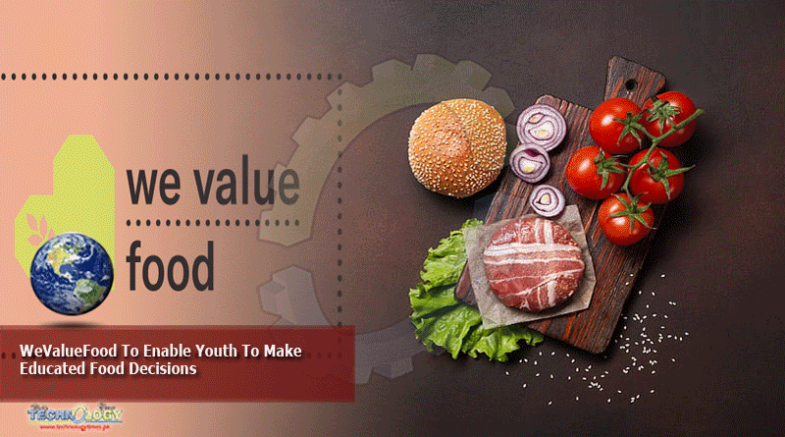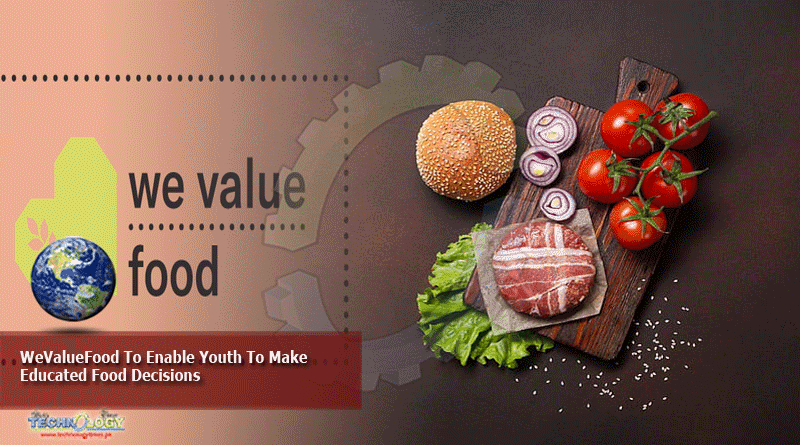WeValueFood Wants To Enable Younger Generations To Make Educated Food Decisions That They Will Take With Them…

throughout the entirety of their lives. I spoke with Dr. Niamh O’Kane, about her work with WeValueFood, and how she and her fellow collaborators want to make a positive impact with their work.
WeValueFood- A cause for positive effect
We began by speaking of her own personal background and how it led to her current projects:
“After graduating from my Human Biology degree in 2015, I began my PhD in the Centre for Public Health at Queen’s University Belfast. During my Ph.D., I investigated the use of social media in public health communication and behaviour change.
Essentially, I wanted to know what the current landscape of health communication looked like on social media, and explore how we can harness social media for good.
I completed my Ph.D. at the end of 2018, after which I took my first post-doctoral job within the Institute for Global Food Security at Queen’s, where I am now.
I have been there just under two years now, working as a research fellow on a project called WeValueFood, a pan-European project funded by EIT Food, Europe’s leading food innovation initiative.
WeValueFood aims to create a more engaged ‘next generation’ (i.e. young people from four to 24) of food consumers, meaning we want to see young people educated, encouraged, and empowered in making good food decisions”.
Niamh believed completing her Ph.D. was a logical step in terms of her current work, due to the many areas of resource that WeValueFood provides:
“Definitely. WeValueFood has a few different facets to it, including working alongside the food industry to create novel communication methods between industry and young consumers and working with educators (from primary-level to university) to provide them with access to existing food education resources and develop strategies they would like to see.
However, the main area, which I focus on within our team, is engaging young people, the ‘next generation’ themselves.
We are engaging young children and young adults in food activities all across Europe, for example, with cooking classes, virtual farm visits, and food skills workshops, in the hopes that these young people will become more interested in, and educated about, the food that they eat.
However, we are not just interested in engaging the unengaged, we are also keen on upskilling young people who are already interested in food, and helping them to become more effective communicators.
This is where my background in social media and health communication really comes in. For example, a study I conducted as part of my Ph.D. found that only 1.3% of all tweets about physical activity, diet, and weight loss on Twitter came from a professional source (i.e. an individual qualified to provide such information or advice, such as a health professional).
That means the other 98.7% came from absolutely anybody or anything capable of creating a Twitter account. And that’s only scraping the surface.
In the last few years, we have become accustomed to the term “fake news”, and the COVID-19 pandemic, in particular, has highlighted the huge swathes of misinformation out there on social media. We have entered a whole new era of armchair (or perhaps keyboard?) experts, and the area of food houses quite a few of them.
For this reason, we realise the importance of equipping bright young, educated food students with the knowledge and skills to disseminate evidence-based information about food on social media.
We want these young people to become “Food Champions” who are capable of changing the heads and hearts of friends and family.
You cannot underestimate the impact of peer influence, and we hope that different contributors, in communicating within their spheres of influence, will help us create the next generation of food consumers who value food for years to come.
We moved on to discuss the last 12 months and the different aspects of the year, which Niamh acknowledges as a success:
This time last year, we were busy preparing for our WeValueFood conference, which took place in Warsaw, November 2019.
We organised a multitude of European speakers and experts from research, education, and industry sectors, to come speak about topics important in the area of engaging next-generation food consumers, and provided early career researchers with the opportunity to share their research.
The conference was a great success with 100+ delegates in attendance. We were also wrapping up some of the work we completed in 2019.
This included a Europe-wide review of over 350 educational resources for food engagement, the development of an online tool that provides educators with access to these resources, and an exploration of stakeholder views captured from 120 individuals across Europe, including those from the food industry, educators, parents, and young people themselves.
The new year certainly brought its own set of challenges, I don’t think anybody in research made it out of 2020 unscathed, but we are proud of how the entire team across Europe were able to adapt methods for online working.
For example, the communication workshops we delivered with our NI Food Champions in October moved seamlessly online and our guest speakers very kindly adapted the delivery of their material for online sessions.
The main thing we were looking forward to which we could not do, was talking about food whilst enjoying some nice food together!
In terms of the wins, I think witnessing the enjoyment of the young children involved in food activities, and seeing our Food Champions flourish, in spite of everything going on in the world, has probably been the biggest win for us this year.
In terms of what could have been done differently, the issue of coronavirus arose. Niamh was honest in terms of discussing the many problems that the pandemic created:
“We spent a lot of 2020 in a state of anxiety for what was to come. For each activity we had planned for the year, we had to think up a plan B, and in some cases, a plan C, D, and E.
We had to become extremely flexible in our research activities and milestones, all the while moving from working in an office to working from home, not to mention any personal circumstances faced.
I think being a pan-European consortium made it even more difficult because it seemed like each day we watched another of our partner countries be ravaged by the coronavirus, one by one until it reached us.
In the end, we were lucky as a research team because most of our activities could be adapted for online delivery, and we would go on to find creative and innovative ways of ensuring our activities maintained the same level of interest and engagement for participants.
If I could go back in time to the beginning of March, I would organise a consortium-wide meeting with all of our European partners, and say “yes, things are going to get scary, but don’t let work stress consume you, because we’re going to meet all of our milestones, albeit in a very different way than we had imagined.”
She spoke of the best way for people to get in touch and learn more about the WeValueFood project:
You can find out more about me and get in touch via Twitter (@okaneniamh) or LinkedIn. If you’re interested in the WeValueFood project, the best way to find more information would be to visit our project website at https://www.eitfood.eu/projects/wevaluefood-2020.
If you want to catch a quick glimpse into our research activities, search the hashtag #WeValueFood on Twitter or Instagram.
Not only will you find the team sharing updates on research activities, but you will also see some of the content created and shared by our amazing Food Champions in both NI and Spain.
Before we finished, Niamh went into detail about her inspirations, those that drive her to succeed and make a difference:
“At the moment, the individuals around the world who are standing up for science, be them political figures, researchers, or teachers, provide us with the inspiration to encourage our Food Champions to be a steady, sound voice among the noise of misinformation and mistruths online.
I personally draw inspiration from many strong, powerful women, both in the public eye, and those in my life. I am inspired by women across the globe who stand up for their beliefs and principles while pursuing the betterment of the world through public service.
Alexandria Ocasio-Cortez, Jacinda Ardern, and Naomi Long, to name a few. I also draw strength and inspiration from my friends, family, and colleagues: those making waves in their careers, raising children, or simply those who are able to find the good in a bad situation. I think we need the latter individuals now more than ever”
This news was originally published at Irish Tech News
